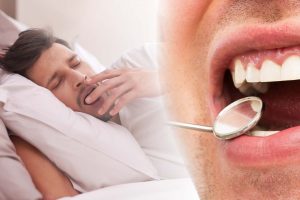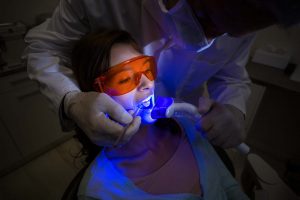Oral health plays a vital role in overall well-being, and it is equally important for men as it is for women. However, men tend to face specific dental concerns that may require special attention.
Gum Disease and Periodontitis
Five common side effects of Gum Disease in Men:
Inflammation and Bleeding Gums: One of the initial signs of gum disease is red, swollen, and bleeding gums. This occurs due to the accumulation of plaque and bacteria along the gumline, leading to an inflammatory response.
Bad Breath: The presence of bacteria in the mouth can cause persistent bad breath, also known as halitosis. Gum disease contributes to this condition, as the bacteria release foul-smelling compounds.
Receding Gums: As gum disease progresses, the gum tissue may start to pull away from the teeth, leading to gum recession. This can expose the tooth roots, making them more susceptible to decay and sensitivity.
Tooth Sensitivity: Receding gums can expose the tooth roots, which are not protected by enamel. This can result in tooth sensitivity, especially to hot or cold temperatures.
Loose Teeth and Tooth Loss: In advanced stages of gum diseases, the infection can destroy the supporting structures that hold the teeth in place, including the gums, jawbone, and connective tissues. This can eventually lead to losing teeth and tooth loss.
Treatments for Gum Disease
Professional Dental Cleaning: Regular dental cleanings by a dental hygienist are essential for removing plaque and tartar buildup that cannot be eliminated by regular brushing and flossing alone.
Scaling and Root Planning: For moderate to advanced gum disease, a deep cleaning procedure called scaling and root planning may be necessary. It involves removing plaque and tartar from above and below the gumline and smoothing the tooth roots to promote gum re-attachment.
Antibiotics: In some cases, antibiotics may be prescribed to control bacterial infection and reduce inflammation. They can be administered orally, topically, or in the form of antibiotic mouth rinses.
Surgical Interventions: In severe cases, surgical treatments like flap surgery, bone grafting, or tissue regeneration may be required to repair and regenerate damaged gum and bone tissues.
Maintenance and Oral Hygiene: It is crucial for men with gum disease to maintain a rigorous oral hygiene routine. This includes regular brushing with a soft-bristled toothbrush, flossing daily, and using antimicrobial mouthwashes as recommended by the dentist.
Lifestyle Changes: Men can reduce their risk of gum disease by quitting smoking and avoiding tobacco products. Smoking is a significant risk factor for gum disease and can impair the healing process.
Oral Cancer
Five side effects of Oral Cancer in Men:
Mouth Sores and Ulcers: One of the common signs of oral cancer is the presence of persistent mouth sores or ulcers that do not heal within two weeks. These sores can be painful and may bleed easily.
Red or White Patches: Men with oral cancer may develop red or white patches on the gums, tongue, or other areas of the mouth. These patches may be flat or slightly raised and can indicate abnormal cell growth.
Difficulty in Chewing and Swallowing: Oral cancer can cause difficulties in chewing and swallowing, leading to weight loss and malnutrition. Men may experience pain or discomfort while eating, and the sensation of food getting stuck in the throat.
Changes in Speech: Cancerous growths or tumors in the mouth can affect speech patterns, causing slurred or distorted speech.
Chronic Sore Throat: Men with oral cancer may experience a persistent sore throat that does not go away with typical remedies.
Swollen Lymph Nodes: The presence of cancerous cells in the oral cavity can lead to swollen lymph nodes in the neck or jaw area.
Treatment for Oral Cancer
Surgery: Depending on the stage and location of the oral cancer, surgical procedures may be performed to remove the tumor. This may involve removing a portion of the mouth, tongue, or jawbone. In advanced cases, neck dissection to remove affected lymph nodes may also be necessary.
Radiation Therapy: High-energy radiation beams are used to target and destroy cancer cells. Radiation therapy may be used as the primary treatment or in combination with surgery or chemotherapy.
Chemotherapy: Medications are administered to kill cancer cells or prevent their growth. Chemotherapy may be used before or after surgery, or in cases where the cancer has spread to other parts of the body.
Targeted Therapy: Certain medications specifically target cancer cells without harming normal cells. These therapies may be used in combination with other treatments.
Rehabilitation: Depending on the extent of surgical procedures, rehabilitation may be necessary to restore speech, swallowing, and other oral functions. This may involve working with speech therapists, nutritionists, and physical therapists.
Palliative Care: In cases where oral cancer is advanced and cannot be cured, palliative care focuses on managing symptoms, improving quality of life, and providing emotional support.
Tooth Loss and Tooth Decay
Side Effects of Tooth Loss and Tooth Decay in Men:
Difficulty in Chewing: Missing teeth or teeth affected by decay can make it challenging to chew and properly break down food, leading to digestive issues and malnutrition.
Speech Impairment: Tooth loss, especially in the front teeth, can affect speech clarity and pronunciation, leading to difficulties in communication.
Self-Esteem and Confidence Issues: Missing or decaying teeth can affect a person’s self-esteem and confidence, impacting social interactions and overall quality of life.
Shifting of Teeth: When a tooth is lost or extracted, the surrounding teeth may start to shift or tilt into the empty space, causing misalignment and bite problems.
Jawbone Loss: Tooth loss can lead to bone loss in the jaw, which can weaken the overall structure and affect facial aesthetics.
Increased Risk of Tooth Decay and Gum Disease: Gaps left by missing teeth can become breeding grounds for bacteria, increasing the risk of tooth decay and gum disease in adjacent teeth.
Treatment for Tooth Loss and Tooth Decay
Dental Fillings: In cases of tooth decay, dental fillings are used to remove the decayed portion of the tooth and restore it with a filling material like composite resin or amalgam.
Dental Crowns: Severely decayed or damaged teeth may require dental crowns, which are custom-made caps that cover the entire visible portion of the tooth, providing strength and protection.
Root Canal Treatment: When tooth decay reaches the pulp of the tooth, causing infection and pain, a root canal procedure may be performed. It involves removing the infected pulp, cleaning the root canal, and sealing it to prevent further infection.
Dental Implants: Dental implants are a popular long-term solution for tooth loss. They involve surgically placing a titanium implant into the jawbone, which acts as a replacement for the tooth root. A crown is then attached to the implant, providing a natural-looking and functional tooth restoration.
Dental Bridges: Dental bridges are used to replace one or more missing teeth. They consist of artificial teeth anchored to adjacent teeth or dental implants, bridging the gap created by the missing teeth.
Dentures: Dentures are removable appliances used to replace multiple missing teeth. They can be complete dentures, replacing all teeth, or partial dentures, replacing only a few missing teeth.
Temporomandibular Joint (TMJ) Disorders
Side Effects of TMJ Disorders in Men:
Jaw Pain and Discomfort: The most common side effect of TMJ disorders is jaw pain or discomfort. Men may experience pain or tenderness in the jaw joint, which can radiate to the surrounding areas such as the ears, temples, and neck.
Headaches: TMJ disorders can lead to frequent headaches, including tension headaches and migraines.
Clicking or Popping Sounds: Men with TMJ disorders may notice clicking, popping, or grating sounds when opening or closing their mouths. This can be accompanied by a sensation of the jaw getting stuck or locked in certain positions.
Difficulty in Chewing and Speaking: TMJ disorders can cause difficulty and discomfort while chewing or speaking. Men may experience pain or fatigue in the jaw muscles, making it challenging to perform these activities.
Facial Pain: TMJ disorders can cause facial pain, including pain in the cheeks, temples, or around the eyes.
Ear Symptoms: Men with TMJ disorders may experience ear-related symptoms, such as earaches, ringing in the ears (tinnitus), or a feeling of fullness or pressure in the ears.
Treatment for TMJ Disorders
Self-Care and Lifestyle Modifications: In mild cases, self-care measures can help alleviate TMJ symptoms. This may include practicing stress management techniques, avoiding hard or chewy foods, applying warm or cold compresses to the jaw area, and performing gentle jaw exercises.
Medications: Over-the-counter pain relievers, such as nonsteroidal anti-inflammatory drugs (NSAIDs), can help reduce pain and inflammation associated with TMJ disorders. In some cases, muscle relaxants or low-dose tricyclic antidepressants may be prescribed to manage symptoms.
Dental Treatments: A dentist may recommend oral appliances, such as splints or mouthguards, to help stabilize the jaw joint and alleviate symptoms. These devices are custom-made to fit the individual’s mouth and can be worn during the day or while sleeping.
Physical Therapy: Physical therapy techniques, such as jaw exercises, manual therapy, and ultrasound, may be employed to improve jaw mobility, reduce muscle tension, and alleviate pain.
Bite Adjustment: In some cases, adjusting the bite or correcting dental misalignments through orthodontic treatments may be beneficial for TMJ disorders.
Invasive Procedures: In rare cases where conservative treatments do not provide relief, invasive procedures such as arthrocentesis, arthroscopy, or open joint surgery may be considered. These procedures aim to repair or remove damaged tissues in the jaw joint.
Conclusion
Regular dental check-ups, practicing proper oral hygiene, adopting healthy lifestyle choices, and seeking timely professional treatment can significantly contribute to long-term oral health. By prioritizing oral care, men can enhance their quality of life, reduce the risk of dental diseases, and enjoy a confident smile. You can fix all your oral problems with us at Langley Dental Centre. Seeking professional guidance is crucial for personalized treatment plans. Embrace the possibilities and take the necessary steps towards enhancing your dental health and self-confidence.






